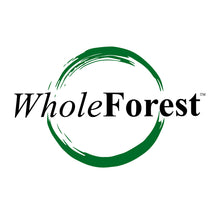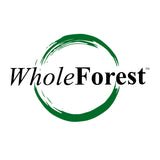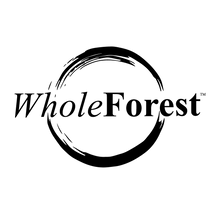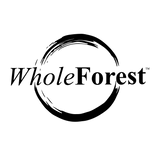Our Story
The Whole Forest story began in 2002, when Peter Pinchot, a recent graduate of the Yale School of Forestry, took a trip to visit his close friend, David Smith, who was volunteering for the Peace Corp in Cristobal Colón, Ecuador. The bus took Peter down a dusty unpaved road that wound through steep Andean farmland, through the cloud forest, eventually flattening out onto the agricultural lands of the coastal plain.
Cristobal Colón, a tiny town of 400, was the last town at the end of the road, situated at the very edge of the Chocó forest, one of the last remaining coastal rainforests in Ecuador. Once a lush rainforest filled with wildlife, much of the forest was now pockmarked with cacao and African oil palm plantations. Local families were making a subsistence living by logging illegally, grazing cattle, or working on oil palm plantations. After a month in the town, Peter realized that only 5% of the original Chocó forest still remained intact, and that this patchwork of land use was destroying one of the most bio-diverse ecosystems in the world.

As the grandson of conservationist Gifford Pinchot, Peter was steeped in the legacy of forest conservation. He was able to see in this fragmented and degraded Ecuadorian landscape, the same pattern of deforestation that his grandfather had set about solving during the Progressive Era in America. But Ecuador was not the United States. There was no stable government ownership or network of laws in place to change the prevailing pattern of destruction. Furthermore, these were private forests. Peter understood that, worldwide, conserving private lands was still the great unsolved puzzle of conservation.
Driven by their respect for the people of Cristobal Colón and their fear of global deforestation, Peter and David tried to imagine what it would look like to implement Gifford Pinchot’s forestry model in Ecuador. Based on Pinchot’s three principles of conservation, they wanted to try to create a sustainable economy that would encourage forest conservation while improving the livelihood of its local residents. Peter was convinced that no conservation model would be effective unless it paid a living wage to the people who depended on the land for their living.
With this as a goal, Peter and David proposed to start a company, called EcoMadera, which would support the local community by selling wood products made from sustainably harvested timber. Because EcoMadera proposed to pay 60% higher prices for legal timber, the theory was that the local people would want to participate because their standard of living would improve. At the same time, receiving higher prices would mean less wood would need to be harvested, resulting in a slower pace of deforestation, especially if combined with teaching sustainable harvesting techniques.
After a number of community meetings over a year, the town of Cristobal Colón not only expressed support for this idea, but sixteen community members also decided to become shareholders in EcoMadera by volunteering a year of their time over three years to construct a rudimentary wood processing facility and plant forest plantations. EcoMadera also received grants from USAID and several NGOs, enabling the company to build a local health clinic and to begin research and development on the over 300 species of trees found in the rainforest.

By 2015, EcoMadera had matured out of its Peace Corps beginnings. Through the work of its founding entrepreneurs, Peter Pinchot and Garrett Siegers, the hybrid company with its community shareholders, had matured into a business that employed 65 local people. It was supported by a United States NGO, the Pinchot Institute for Conservation, which helped EcoMadera conduct intensive R&D in conservation, forestry, and wood products. While implementing these studies, EcoMadera also developed a viable business manufacturing balsa wood laminates that were used to build wind turbine blades. The balsa laminate business helped EcoMadera build a work culture and capacity that laid the groundwork for the next big change.
In 2017, EcoMadera was finally ready to begin developing and marketing wood products using all of the many hardwood species of the rainforest. Rebranding itself as Whole Forest, the new name captured the governing philosophy of the company, which was to solve the conundrum of dealing with the overwhelming diversity of species in the whole forest, rather than extracting out only a few marketable species, which then left the forest less valuable and more vulnerable to deforestation. If a beautiful wood product could be made using the whole spectrum of colors and textures that came out of the forest, this innovative approach would enable Whole Forest to harvest the trees at a sustainable rate and to keep the forest both intact and productive, just as Gifford Pinchot had demonstrated a century ago.

This pivot led to the blossoming of a new business partnership with Brad Sullivan of Cider Press Woodworks in Quakertown, Pennsylvania, where Whole Forest is now operating its design, marketing, and distribution of hardwood products. Whole Forest also recently employed a Creative Director, Maura Costello. She is working to build prototypes and discover the design aesthetics inherent in the many beautiful tree species. She is also studying the performance capabilities and character of these remarkable yet under-utilized hardwoods. With the support of its first major investor, Whole Forest and the workers in Cristobal Colón have almost completed a new hardwood factory. By October 2018, Whole Forest will begin delivering beautiful multiple species flooring and edge-glued table tops, counters, and wall paneling, which use the natural colors of the harmonious rainforest species.
Our process from the beginning has been one of listening, learning, exploring, taking calculated risks, and pivoting towards a stronger future. Our goal, globally, is to protect and enhance the many values of the rainforest. Locally, every step forward is for the benefit of the Chocó Forest and the people who depend on it for their livelihood. We hope that our customers will grasp how integral the wood products are to the hundreds of families who can now see a better future. We hope they will be inspired by the beauty of the wood to help keep the rainforest intact as a resource for its people and as the lungs of our planet. This is what the name Whole Forest means to us.



